

Heritage Day Essay Guide for Grade 10 Learners
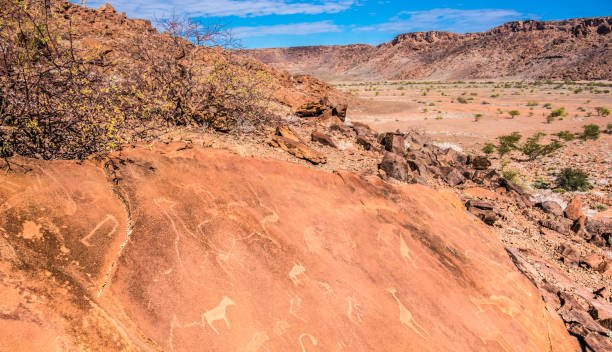
This page contains an essay guide for Grade 10 History learners on how to write a Heritage Day essay (introduction, body, and conclusion). On the 24th of September every year in South Africa, there is a great celebration of all cultures and heritages of all South Africans. This was after the Inkatha Freedom Party proposal in 1996.
Table of Contents
Background on South African Heritage Day
Before you write your essay, you should first know what heritage day is and what it means.
The word ‘heritage’ can be used in different ways. One use of the word emphasises our heritage as human beings. Another use of the word relates to the ways in which people remember the past, through heritage sites, museums, through the construction of monuments and memorials and in families and communities (oral history). Some suggest that heritage is everything that is handed down to us from the past.
One branch of Heritage Studies engages critically (debates) with issues of heritage and public representations of the past, and conservation.
It asks us to think about how the past is remembered and what a person or community or country chooses to remember about the past. It is also concerned with the way the events from the past are portrayed in museums and monuments, and in traditions. It includes the issue of whose past is remembered and whose past has been left unrecognised or, for example, how a monument or museum could be made more inclusive.
Important: you should include relevant images to go with your key points. You can find plenty of images on the internet, as long as you provide the credits/sources.
When you write your Heritage Day essay as a grade 10 student, you will get great marks if you include the following structure:
- Provide a brief history linked to heritage day
- The main key issues you will be discussing throughout your essay
- Explain the changes that were made to this public holiday.
- Explain how the day is celebrated in schools, families, workplaces and other institutions like churches etc.
- How does the celebration of the holiday bring unity and close the gaps of the past?
- Explain how the celebration of the day enforces the application of the constitution of South Africa.
- What key points did your essay cover?
- What new knowledge did you learn or discover?
- What are your views on “Heritage Day”?
Example of “Heritage Day” Essay for Grade 10 Students
Below is an example of how to write an essay about Heritage Day for grade 10 learners, using the structure discussed above:
Introduction:
Heritage Day, celebrated on the 24th of September, is a South African public holiday that serves as a reminder of the nation’s rich cultural heritage and diverse history. The day was established to honor the various cultures, traditions, and beliefs that make South Africa a truly unique and diverse country. This essay will discuss the history of Heritage Day, the changes made to this public holiday, and how its celebration promotes unity and reinforces the South African Constitution .
Changes to Heritage Day:
Initially known as Shaka Day, Heritage Day was introduced to commemorate the legendary Zulu King Shaka who played a significant role in unifying various Zulu clans into one cohesive nation. However, with the advent of a democratic South Africa in 1994, the day was renamed Heritage Day to promote a broader and more inclusive celebration of the nation’s diverse cultural heritage.
Celebrations in Various Institutions:
Heritage Day is celebrated in numerous ways throughout South Africa, with schools, families, workplaces, and religious institutions all participating. In schools, students and teachers dress in traditional attire, and activities such as cultural performances, food fairs, and storytelling sessions are organized to educate learners about different cultural backgrounds. Families gather to share traditional meals, pass down stories, and engage in cultural activities. Workplaces often host events that encourage employees to showcase their diverse backgrounds, while churches and other religious institutions use the day as an opportunity to emphasize the importance of tolerance and acceptance.
Promoting Unity and Closing Gaps:
The celebration of Heritage Day has played a vital role in fostering unity and bridging the divides of the past. By appreciating and acknowledging the various cultures and traditions, South Africans learn to respect and accept one another, ultimately creating a more harmonious society. The public holiday serves as a platform to engage in conversations about the nation’s history, allowing for a better understanding of the diverse experiences that have shaped South Africa.
Enforcing the South African Constitution:
Heritage Day also reinforces the principles enshrined in the South African Constitution, which guarantees cultural and linguistic rights to all citizens. By celebrating and embracing the diverse cultures, South Africans put into practice the values of equality, dignity, and freedom as envisioned by the Constitution.
Conclusion:
In this essay, we have explored the history and significance of Heritage Day, its transformation from Shaka Day, and how it is celebrated across various institutions in South Africa. We have also discussed how the celebration of this day fosters unity and enforces the principles of the South African Constitution. Heritage Day serves as a reminder that our differences make us stronger, and that through understanding and embracing our diverse backgrounds, we can build a more inclusive and united South Africa.
More Resources
Below are more previous resources you can download in pdf format:

National Heritage Day in South Africa: What is Heritage Day and Why Do We Celebrate It
Sep 13, 2021 | News , South Africa
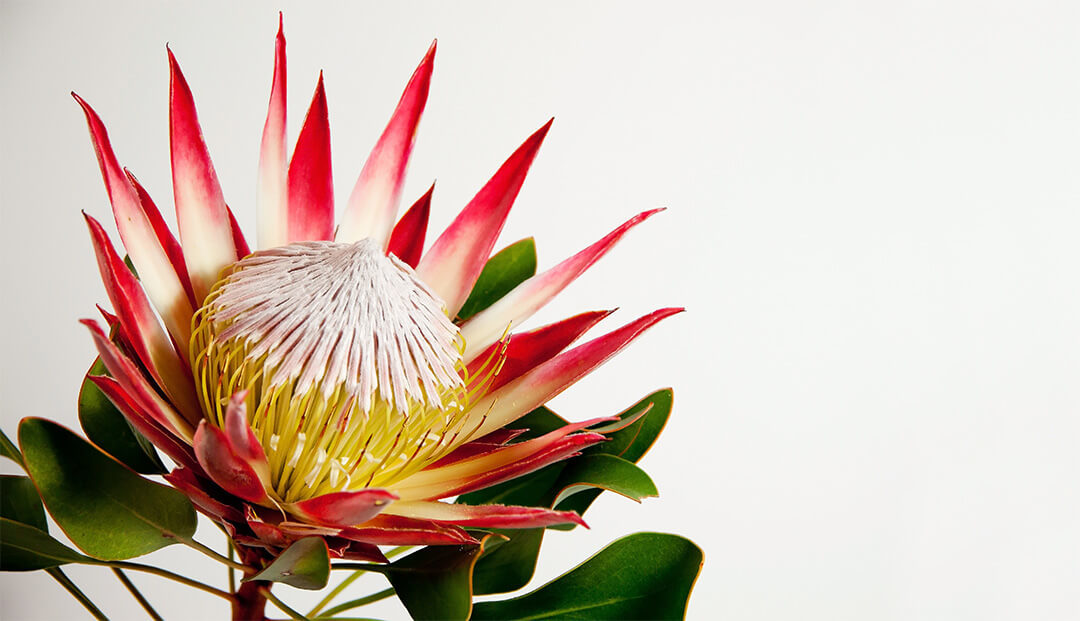
First published in September 2019, updated in September 2021.
September is Heritage Month in South Africa, with National Heritage Day celebrated on 24 September
Each year in early spring, people across the nation get together to eat, drink and be merry, celebrating what makes us all uniquely South African.
Heritage Day was declared a public holiday in 1996 and, since then, the 24th of September has been a day that encourages us to celebrate our cultural traditions, communities and heritage.
In the following post, we discuss South Africa’s Heritage Day; how it began, the connection to braais and how you can celebrate this year.
What is Heritage Day?
Heritage Day is a public holiday celebrated on 24 September in South Africa that recognises and celebrates the cultural diversity of the country. In its essence, the day embraces and celebrates the true meaning of why we call ourselves the Rainbow Nation.
South Africans mark the day by wearing traditional outfits, eating traditional foods, learning about different cultures and spending time with friends and family.
The History of Heritage Day in South Africa
The 24th of September marks ‘Shaka Day’ or ‘Shaka’s Day’, a day which commemorates the legendary King Shaka Zulu. Shaka Zulu played an important role in uniting different Zulu clans into one cohesive Zulu nation in Kwa-Zulu Natal. Each year, thousands of people gather at King Shaka’s grave to pay tribute to him and to honour his memory.
To learn more about the history, life and legend of King Shaka Zulu, the Anglo Zulu war and Zulu culture, book either the:
- KwaZulu-Natal Shakaland Zulu Village Tour
- Half-Day Soweto Tour
- PheZulu Cultural Village Day Tour
- Isandlwana and Rorke’s Drift Battlefields Tour
- Robben Island Half-Day Tour
You can also learn more about King Shaka in the book Shaka Zulu: The Biography of the Founder of the Zulu Nation by E.A. Ritter .
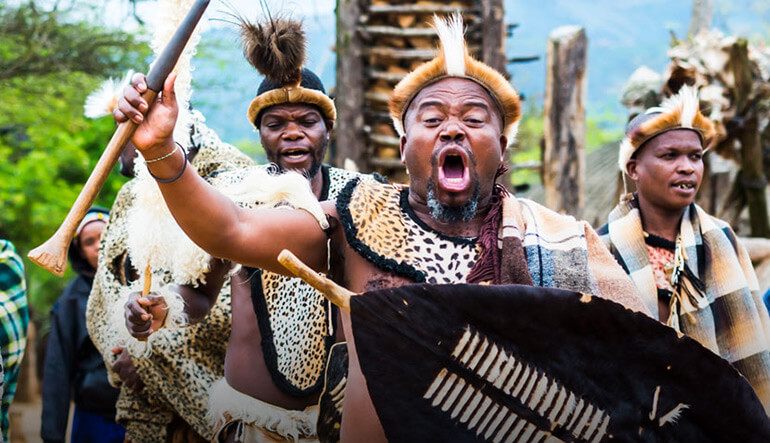
When the New South African Parliament omitted Shaka Day from the proposed Public Holidays Bill, the Inkatha Freedom Party (IFP), a South African political party with a large Zulu membership, objected.
Eventually, a compromise was reached, and it was decided that a national holiday would be created where South Africans of all cultures and creeds could come together and celebrate their diverse cultural heritage.
In an address marking Heritage Day in 1996, the late former State President Nelson Mandela said, “When our first democratically-elected government decided to make Heritage Day one of our national days, we did so because we knew that our rich and varied cultural heritage has a profound power to help build our new nation.”
We did so, knowing that the struggles against the injustice and inequities of the past are part of our national identity; they are part of our culture. We knew that, if indeed our nation had to rise like the proverbial phoenix from the ashes of division and conflict, we had to acknowledge those whose selfless efforts and talents were dedicated to this goal of non-racial democracy.
In more recent years, National Heritage Day has become synonymous with National Braai (Barbecue) Day . Some call it Shisa Nyama or Ukosa , while others call it a braai , but whatever the occasion, nothing beats gathering around a wood fire to cook a meal and celebrate together.

Why Do We Braai on Heritage Day?
There is nothing more South African than lighting a fire and cooking a meal, and it’s something that crosses racial, cultural, religious and social boundaries. The National Braai Day in South Africa was developed by Stellenbosch native, Jan Scannell – more commonly known as ‘Jan Braai’ – who quit his job in finance in 2005 to focus on the National Braai Day Initiative.
Just like the Irish have St Patrick’s Day, the French have Bastille Day and Australians have Australia Day, National Braai Day calls on all South Africans to unite around fires and share and celebrate our unique culture and heritage.
In 2007, Archbishop Desmond Tutu became patron of South Africa’s Braai Day, backing the idea that donning an apron to braai a boerewors (farm sausage) could be a unifying force in a country that had been previously divided. The following year, the initiative received the endorsement of South Africa’s National Heritage Council. It couldn’t be a more apt way to bring a rich and culturally diverse nation such as South Africa together in unity, because what good South African doesn’t love a braai?
How You Can Celebrate Heritage Day
There are plenty of opportunities to celebrate South Africa. Here are six ways to enjoy this year’s Heritage Day.
- Join chef Annie Badenhorst at Benguela Cove Wine Estate in Hermanus for their Heritage Day Braai on 24 September at 12pm. Guests can select either a delicious gourmet braai picnic basket, or share a flavourful braai platter. There will also be live music and great South African vibes.
- Celebrate with the Vrede en Lust Heritage Day Box which includes a selection of wines, traditional spices and condiments. It’s a great box to gift to friends or purchase for your own Heritage Day picnic or braai.
- Cape Town is known for its delectable traditional dishes, so why not learn how to make them. Spend Heritage Day by booking a cooking class to learn some of the local favourites such as koeksisters, braaivleis and gatsby. One of our personal favourites is the Cape Malay style cooking classes offered in the historic area of Bo-Kaap. Some of our favourite cooking classes are from Lekka Kombuis and Ginger and Lime .
- Visit one of CapeNature’s 22 nature reserves in the Western Cape for free. Visitors to CapeNature can enjoy a free day entry to explore their natural heritage at selected reserve destinations from 13 to 20 September.
- Join a Heritage Day scenic cruise around the Durban Harbour. The cruise includes starters, a photoshoot, complimentary bottle of champagne (2 bottles per table of 10 people) and lunch.
- Discover the magic of Freedom Park in Pretoria with free entry on 24 September 2021.
How to Celebrate Your Own South African Heritage Day Anywhere in the World
If you’re not in South Africa, you can still celebrate a South African Heritage Day by hosting your own braai (or barbecue).
Here are a few essentials to get your National Braai Day celebration going:
- Charcoal
- A braai apron
- A complete grill tool set
- The Democratic Republic of Braai by Jan Braai recipe book
- A South African flag for decoration
- Ina Paarman’s Braai & Grill Seasoning to add some flavour to your meat (or vegetables)
- Your preferred selection of meat, vegetables, salads, bread and condiments
Whatever you choose to do to celebrate National Heritage Day, enjoy it with friends and family, wave the South African flag proudly, and remember your heritage and the place it holds in South Africa’s multicultural landscape.
Read about the other important public holidays in South Africa:
- What is Human Rights Day and Why We Celebrate on March 21
- What is Freedom Day in South Africa and Why Do We Celebrate It
- Why We Celebrate Youth Day on 16 June
- Why We Celebrate Women’s Day on August 9th
While not a public holiday, here’s how you can celebrate Mandela Day on 18 July .
Join our newsletter!
Sign up for travel tips and news from Africa delivered straight to your inbox! We won't send you spam or boring emails, we promise!
Thank you! Please check your inbox for a confirmation mail.
By joining our list, you agree to the terms of our privacy policy .
13 Comments
Nice information
Thank you! 🙂
whaaaaaaaaaaaaaaaaaaaaaaaaaaaaaaaat
Letitia thanks for informative and helpful information
What is the name and surname of the person who published all this Information am doing a school project about heritage please reply
Nice to read your blog!
Thanks 😊, now I know about 24 September
Yo u colll bro ur my step bro 😍🤞🏽
This is one of the best posts I have ever came across. Today we celebrate Heritage day “online” as a corporate company and guess what ? I will be using some of YOUR information to share with our special people ! I have learned so much in 7 to 8 of your first sentences ! Brilliant – what a lovely layout and professional, yet super light and great for culture day celebrations! Happy Heritage day and have a wonderful “BRAAI” !!!! … en melktert !
Thank you so much Vicky! We’re delighted that you found the post valuable. Have a lekker Heritage Day! 🙂
Thank you. I’m grateful. My brother’s assignment benefited much from it, and I also picked up some new knowledge.
This is wonderful
Trackbacks/Pingbacks
- My 6 favourite things about this Heritage Day weekend - Brat with a Blog - […] Thursday it was Heritage Day in South Africa. Heritage Day is a public holiday, so like many others Mr…
- Celebrate Heritage Day 2020 | Show National Pride This Heritage Day - […] African Travel Compass states that September 24th was originally Shaka Day. A day that commemorated the great Zulu king Shaka…
- 5 Historical sites you can visit this Heritage Day - Entertainment SA - […] Main Image: africantravel […]
- Heritage Month & Day - Leads 2 Business Blog - […] African Travel Canvas SA History National […]
- Braai, friends and pickled kumquats - Kriya Gangiah shares her take on Heritage Day - samachar24live.com - […] पहले ‘शाका दिवस’ कहा जाता था, 24 सितंबर महान राजा शाका ज़ुलु की याद दिलाता है, जो “क्वाज़ुलु-नताल में…
Submit a Comment Cancel reply
Your email address will not be published. Required fields are marked *
Latest Posts
- Africa’s Big Five and Where You Can View Them March 7, 2024
- The 5 Most Endangered Animals in Africa | Rare African Animals February 6, 2024
- What to Wear on Safari in Southern Africa Packing Guide & Tips January 16, 2024
- The Top 10 Best Places to Go Shopping in Cape Town November 20, 2023
- Top 10 Activities You Can Do on a Beach and Island Vacation in Southern Africa November 12, 2023
Pin It on Pinterest

This day is a reflection of the nation’s commitment to celebrating and preserving its unique heritage. In this blog, we’ll delve into the significance, history, and customs of Heritage Day in South Africa.
The Significance of Heritage Day
Heritage Day, also known as “Braai Day,” serves as a reminder of the importance of embracing and cherishing South Africa’s cultural mosaic. It encourages South Africans to take pride in their roots, whether they are Zulu, Xhosa, Afrikaans, Indian, or any of the other diverse groups that call the country home. This celebration fosters unity by recognizing that the nation’s strength lies in its diversity.
Historical Roots
The roots of Heritage Day can be traced back to the early 1990s when South Africa was undergoing a profound transformation from apartheid to democracy. During this time, there was a growing desire to foster unity among the nation’s diverse population. In 1995, the government officially declared September 24th as Heritage Day to encourage South Africans to celebrate their cultural heritage.
Braai Day Tradition
One of the most beloved aspects of Heritage Day is the tradition of “braai,” a South African barbecue. On this day, families and friends gather to enjoy a feast of grilled meats, traditional dishes, and homemade treats. The sizzling sound of meat on the grill and the aroma of spices fill the air as people come together to share food and stories. It’s a time to bond, strengthen relationships, and appreciate the culinary diversity that South Africa offers.
Cultural Celebrations
Heritage Day is not just about food; it’s also about showcasing the nation’s vibrant cultures. Throughout South Africa, you can find cultural festivals, performances, and exhibitions on this day. People dress in their traditional attire, dance to traditional music, and participate in various cultural activities. It’s an opportunity to learn about and experience the richness of South Africa’s heritage.
Promoting Tolerance and Understanding
In a country with a history of deep-seated divisions, Heritage Day plays a vital role in promoting tolerance and understanding. It encourages conversations about the past while emphasizing the importance of embracing diversity and building a united future. By celebrating their heritage together, South Africans contribute to the ongoing process of reconciliation and nation-building.
Heritage Day in South Africa is a beautiful celebration of unity in diversity. It reminds us that a nation’s strength lies in its ability to cherish its cultural heritage while embracing the differences that make it unique. As South Africans gather around the braai fires and celebrate their traditions, they send a powerful message: that diversity is a source of strength, and heritage is a bridge that connects us all.
Heritage Day Around South Africa
View this post on Instagram A post shared by The Waffle House | Ramsgate (@wafflehouseza)
View this post on Instagram A post shared by Thembalitsha Foundation (@thembalitsha)
View this post on Instagram A post shared by The Kusasa Project 🇿🇦 (@thekusasaproject)

Leave a Reply Cancel reply
You must be logged in to post a comment.
Stay in touch
Fill in your email to receive occasional updates from The Expedition Project. We will never share your address and you can opt-out at any time.


What is Heritage Day and why its Important in South Africa

Heritage Day is an important South African public holiday which is celebrated on the 24 th of September each year. It is a day on which all South Africans are encouraged to celebrate their culture and the diversity of their beliefs and traditions, in the wider context of a nation that belongs to all its people. As the self-proclaimed ‘Rainbow Nation’, boasting a vibrant cultural diversity, eleven official languages, a rich and intricate history and a variety of traditions, Heritage Day is recognized and celebrated in many different ways in South Africa.
History of Heritage Day

Photo credit: Retlaw Snellac Photography (Flickr)
While many South Africans are aware of Heritage Day, how many know the history behind it, the true reason we celebrate this momentous holiday, and its connection to various cultures and traditions?
Heritage Day was initially known as ‘Shaka Day’ or ‘Shaka’s Day’, a day dedicated to commemorating the legendary King Shaka Zulu on the presumed date of his death in 1828. Shaka Zulu played an important role in uniting different Zulu clans into one cohesive Zulu nation in Kwa-Zulu Natal. To this day, thousands of people gather at the King Shaka Memorial on the 24 th of September each year to pay tribute to the great Zulu King.
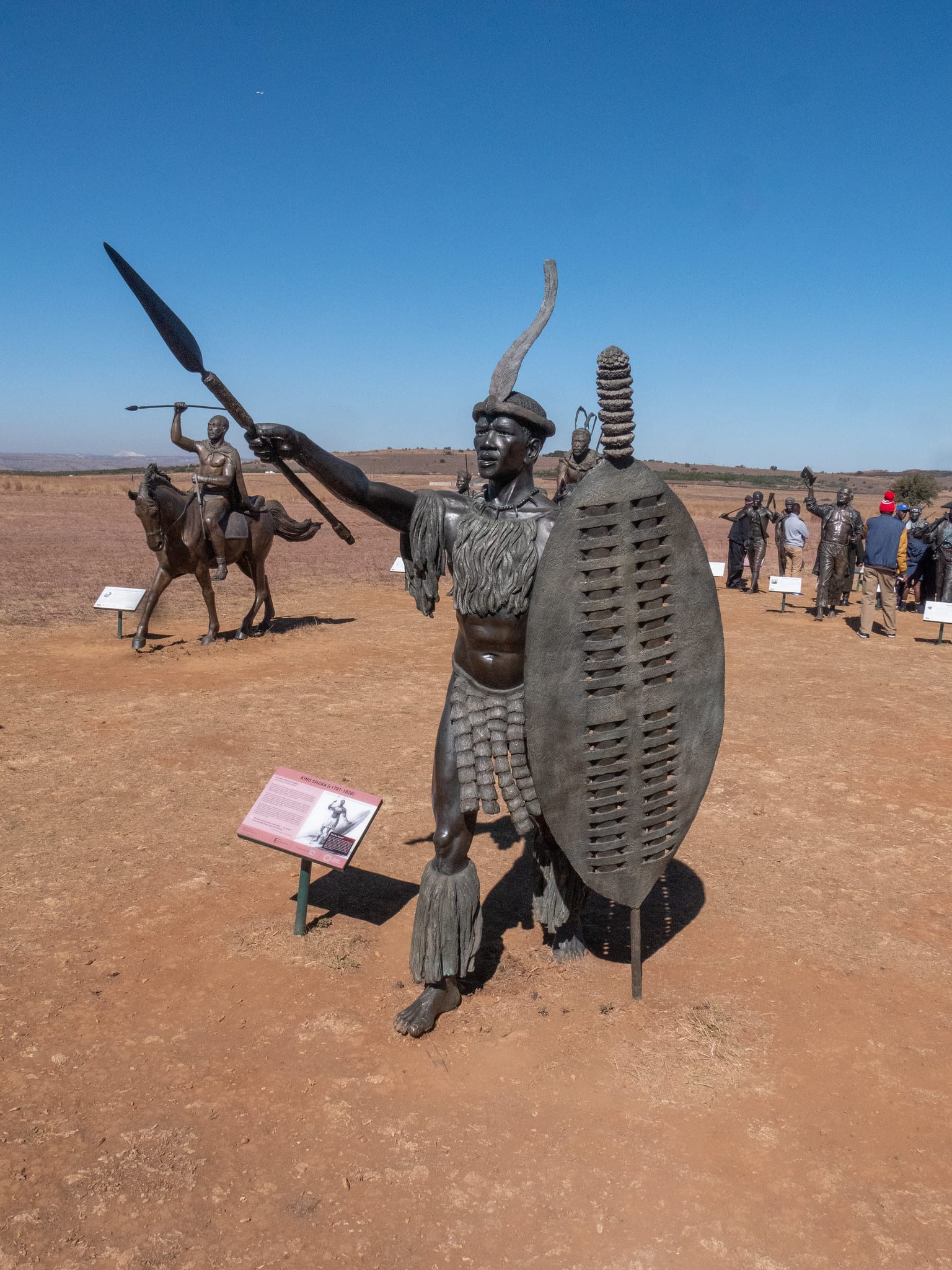
Photo credit: Jay Calvin (Flickr) | Shaka kaSenzangakhona (1780s -1828) Bronze Statue – ‘Long March to Freedom’ Monument
When the bill presented to the new post-Apartheid Parliament of South Africa in 1996 omitted Shaka Day from the proposed Public Holidays Bill, the Inkatha Freedom Party (IFP), a South African political party with a large Zulu membership, strongly objected to the bill. Eventually, a compromise was reached between the Parliament and the ANC (African National Congress), and it was decided that a national holiday would be created where South Africans of all cultures and creeds could come together and celebrate their diverse cultural heritage – Giving rise to Heritage Day!
“When our first democratically-elected government decided to make Heritage Day one of our national days, we did so because we knew that our rich and varied cultural heritage has a profound power to help build our new nation.”
– Late former President Nelson Mandela in an address marking Heritage Day in 1996
In recent years, Heritage Day has further evolved and become synonymous with National Braai Day. Some call it Shisa Nyama or Ukosa, while others call it a braai. Regardless of what term you use, the intention remains the same – Gathering around a fire, enjoying good food, good company and celebrating your culture and heritage with friends, family, and the ones you love.
Why is Heritage Day Important in South Africa
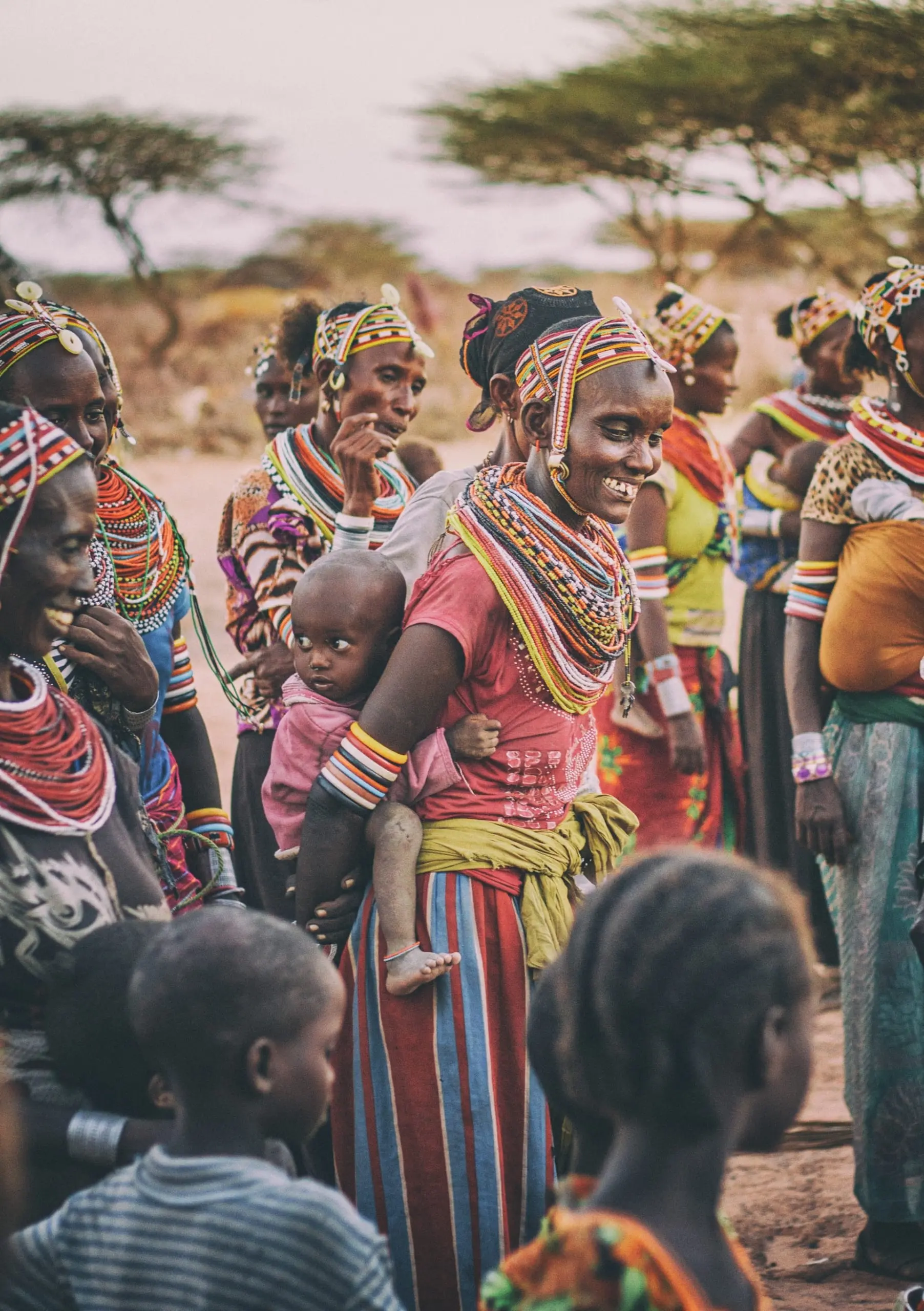
South Africa ranks among the 10 most culturally diverse countries in the world. A county’s relative diversity is determined based on several factors and high-level considerations, including: Level of ethnic diversity; Number of immigrants; Number of spoken languages; Number of religious beliefs; Number of political parties; Level of religious freedom; LGBT rights and freedom; and Level of personal liberty. Each of these categories are further divided into sub-categories, to ultimately determine the level of cultural diversity in any given country.
In addition to being one of the most culturally diverse countries, the population of South Africa is one of the most complex and diverse in the world. It is because of this intricate and vast diversity that Heritage Day is so important in South Africa and should be celebrated by all its people. National Heritage Day is dedicated to recognizing the cultural wealth of our nation in its entirety. By acknowledging, embracing, and celebrating our various cultures, traditions, and heritage against the background of our unique diversity, we build pride in ourselves, our fellow South Africans, and our nation as we remember the difficulties and hardships of the past, share in the victories of the present, and raise hope for the future.
One of the most important aspects of Heritage Day is the fact that it exposes us as South Africans to different people, cultures, traditions, beliefs, and religions we may never have been exposed to or encountered otherwise. It encourages us to step outside of our own ‘cultural bubble’, and urges us to learn, grow, explore, and experience the vibrant and diverse range of cultures that exists within our glorious rainbow nation. And, in turn, allow us to understand, appreciate, recognize, and respect each culture and everything it embodies.
At the end of the day, we are ALL South Africans, and our ability to grow and learn from each other is not only endless, but a gift. This will further allow us to grow as individuals and contribute to a more unified South Africa.
Heritage Day therefore provides a great opportunity for all South Africans to put their differences in politics, perspectives, and opinions aside, to unite and come together in a single shared purpose and objective – To celebrate South Africa’s profound history and heritage TOGETHER AS ONE NATION!
Living Heritage
Another important aspect of South Africa’s heritage that should not be forgotten is living heritage. In essence, living heritage is the foundation of all communities and an essential source of identity and continuity. The various aspects of living heritage include: Cultural tradition; rituals; oral history; popular memory; performance; indigenous knowledge systems; techniques and skills; and the holistic approach to nature, society, and social relationships. In South Africa, the term ‘living heritage’ is used interchangeably with the term ‘intangible cultural heritage’.
Why is living heritage important and what role does it play? Living heritage plays a vital role in promoting cultural diversity, reconciliation, social cohesion, economic development, and peace. In every South African community, there are living human treasures who possess a high degree of knowledge, skills and history pertaining to different aspects of diverse living heritage. It is important for South Africans to reclaim, restore and preserve these various aspects of living heritage in order to promote and accelerate its use in addressing the various challenges communities are facing today.
South African Cultures
South Africa is the Rainbow Nation, a title that captures the country’s cultural and ethnic diversity. As mentioned, the population of South Africa is one of the most complex and diverse in the world.
South Africa’s black population is divided into four major ethnic groups; namely Nguni (Zulu, Xhosa, Ndebele, and Swazi), Sotho, Shangaan-Tsonga, and Venda. There are numerous subgroups within these main ethnic groups of which the Zulu and Xhosa (two subgroups of the Nguni group) are the largest.
The majority of South Africa’s white population (about 60%) is of Afrikaans descent, with many of the remaining 40% being of British or European descent. South Africa’s coloured population have a mixed lineage, which often comprises the indigenous Khoisan genes combined with African slaves that were brought here from all over the continent, and white settlers.
Languages in South Africa
South Africa has eleven official languages:
- English (9.6%)
- Afrikaans (13.5%)
- Ndebele (2.1%)
- Sepedi (9.1%)
- Xhosa (16%)
- Venda (2.4%)
- Tswana (8%)
- Southern Sotho (7.6%)
- Zulu (22.7%)
- Swazi or SiSwati (2.5%)
- Tsonga (4.5%)
In addition to its eleven official languages, many other languages from all over the world are frequently spoken in South Africa, some of which include: Portuguese, Greek, Italian, French, Chinese etc.

Heritage Day is one of the most important National Holidays in South Africa. It is vital to both the nation as a whole and its people that it continues to be recognized, commemorated, and celebrated.
Despite the many differences that exist amongst the various South African cultures, South Africa’s strong sense of unity around longstanding traditions has always remained integral. When needed, our rainbow nation always comes together as a force to be reckoned with.
Contact Secret Africa
+27 21 204 6073
Email: [email protected]
Address: Workshop17, 17 Dock Road, V&A Waterfront, Cape Town, 8005
Important Pages
- Privacy Policy
- Terms & Conditions
- Newsletter Sign Up

This site uses cookies. By continuing to browse the site, you are agreeing to our use of cookies.
Cookie and Privacy Settings
We may request cookies to be set on your device. We use cookies to let us know when you visit our websites, how you interact with us, to enrich your user experience, and to customize your relationship with our website.
Click on the different category headings to find out more. You can also change some of your preferences. Note that blocking some types of cookies may impact your experience on our websites and the services we are able to offer.
These cookies are strictly necessary to provide you with services available through our website and to use some of its features.
Because these cookies are strictly necessary to deliver the website, you cannot refuse them without impacting how our site functions. You can block or delete them by changing your browser settings and force blocking all cookies on this website.
These cookies collect information that is used either in aggregate form to help us understand how our website is being used or how effective our marketing campaigns are, or to help us customize our website and application for you in order to enhance your experience.
If you do not want that we track your visist to our site you can disable tracking in your browser here: Click to enable/disable Google Analytics tracking.
We also use different external services like Google Webfonts, Google Maps and external Video providers. Since these providers may collect personal data like your IP address we allow you to block them here. Please be aware that this might heavily reduce the functionality and appearance of our site. Changes will take effect once you reload the page.
Google Webfont Settings: Click to enable/disable Google Webfonts.
Google Map Settings: Click to enable/disable Google Maps.
Vimeo and Youtube video embeds: Click to enable/disable video embeds.
You can read about our cookies and privacy settings in detail on our Privacy Policy Page.

See More Stories Like This


Press ESC to close
Or check our popular categories....
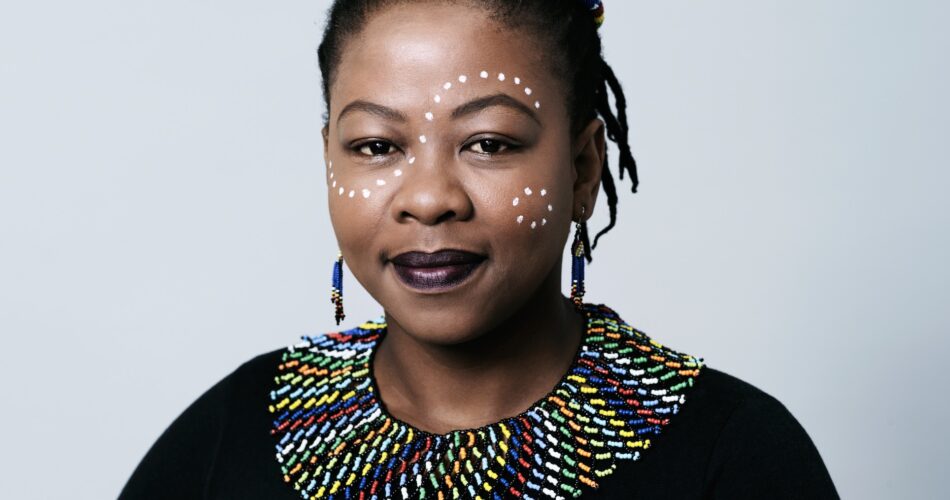
How Does Heritage Day Bring Unity and Close the Gaps of the Past in South Africa? Essay
How Does Heritage Day Bring Unity and Close the Gaps of the Past in South Africa? – Essay
The celebration of heritage brings unity by fostering a shared sense of identity and pride among people. It connects individuals to their roots and helps bridge the gap between diverse cultures by showcasing their unique histories, traditions, and values. Through these celebrations, people develop a collective understanding and appreciation of their common origins and the diverse paths that have shaped their community.
Here’s how the celebration of heritage contributes to unity:
- Cultural Awareness: Increases understanding and respect for different customs and practices, reducing prejudices and promoting acceptance.
- Preservation of Traditions: Encourages the preservation of cultural practices and languages, which might otherwise be lost, strengthening community bonds.
- Educational Opportunities: Provides educational experiences for younger generations, teaching them about their history and the importance of diversity.
- Community Engagement: Brings people together through events and festivals, which facilitates dialogue and builds relationships among community members.
- Economic Benefits: Often, heritage celebrations can boost local economies through tourism and local crafts, which creates shared economic prosperity and fosters a sense of common purpose.
By valuing and celebrating heritage, communities can enhance their cohesion and create a more inclusive and supportive environment for all their members.
Table of Contents
In South Africa, Heritage Day , celebrated on the 24th of September , is a profound national holiday that recognises and celebrates the cultural wealth of the nation . It’s a day that reflects the country’s complex history, marked by apartheid, colonialism, and the struggle for freedom , and how its diverse cultures contribute to the nation’s identity. This essay delves into how Heritage Day in South Africa fosters unity and addresses historical divisions.
In a nutshell, Heritage Day brings unity and closes the gaps of the past in South Africa through:
- Celebrating Cultural Diversity : By showcasing the rich tapestry of cultures within the nation, Heritage Day encourages mutual respect and appreciation among different communities, fostering a sense of belonging and unity.
- Remembering Shared Histories : The day serves as a reminder of South Africa’s complex history, including the struggles against apartheid and colonialism, helping to build a shared national identity based on collective memories and experiences.
- Promoting Social Cohesion : Through various nationwide activities and events, such as communal braais (barbecues) and cultural exhibitions, Heritage Day provides opportunities for South Africans to come together, bridging social and cultural divides.
- Educational Impact : Heritage Day plays a crucial role in educating the younger generation about the country’s history and the importance of diversity, democracy, and unity, ensuring that the lessons of the past are remembered and valued.
- Acknowledging and Honoring the Struggle for Freedom : The day pays tribute to the heroes of the liberation struggle, acknowledging their sacrifices and inspiring a sense of pride and unity among all South Africans in the face of their common history of resistance and resilience.
Honouring Diverse Cultural Heritage to Foster Unity
Heritage Day in South Africa is a vibrant celebration of the rich tapestry of cultures that make up the nation’s identity. From the Zulu to the Xhosa, the Afrikaners to the Coloureds, and the Indian community, each group has its unique traditions and histories that are celebrated on this day.
- Promotion of Cultural Understanding : By showcasing the diverse cultural practices and histories of South Africa’s various ethnic groups, Heritage Day encourages understanding and appreciation among these communities. This mutual respect is fundamental to building a unified national identity.
- Breaking Down Historical Barriers : The day provides an opportunity for South Africans to reflect on their shared history of oppression and resistance. It acts as a bridge, connecting people through their collective memory of the struggle for freedom and equality, thereby helping to heal the divisions of the past.
Commemorating the Struggle for Freedom to Close Historical Gaps
Heritage Day is not just a celebration of cultural diversity but also a day to remember the long and arduous struggle against apartheid. This aspect of the holiday plays a critical role in closing the gaps left by South Africa’s troubled past.
- Recognition of Shared Struggles : The day pays homage to the heroes of the liberation struggle, acknowledging their sacrifices for freedom and democracy. This recognition helps to close the historical gaps by reminding all South Africans of their common fight against oppression.
- Educational Impact : Heritage Day serves as an educational tool that fosters a deeper understanding among the younger generation of South Africa’s history. Through events and narratives shared on this day, young people learn about the injustices of the past and the importance of unity and democracy, ensuring that the lessons of history are not forgotten.
Encouraging National Unity Through Celebration
The celebration of Heritage Day in South Africa is a powerful expression of national unity. Through its emphasis on diversity and shared history, the day plays a vital role in knitting the fabric of the South African nation more tightly together.

- Cultural Festivals and Events : Across the country, South Africans engage in a variety of activities, from braais (barbecues) which transcend cultural boundaries, to cultural exhibitions, dances, and music performances. These events serve as gatherings that bring people from different backgrounds together, promoting social cohesion and national unity.
- The Role of “Braai Day” : The informal nickname for Heritage Day, “ Braai Day ,” emphasizes the idea that sharing a meal is a universal way to connect people. This aspect of the celebration is a fun and inclusive way to encourage unity across cultural divides, symbolizing the nation’s diversity and the common ground found in celebrating together.
Heritage Day in South Africa plays a crucial role in promoting unity and bridging the historical gaps that have long divided the nation. By honouring the diverse cultural heritage of its people and commemorating the struggle for freedom, the day reinforces the values of mutual respect, understanding, and a shared national identity. In celebrating Heritage Day, South Africans reaffirm their commitment to overcoming the challenges of the past and building a united and prosperous nation for future generations.
Categorized in:
Like what you read?
Subscribe to our newsletter.
Subscribe to our email newsletter to get the latest posts delivered right to your email.
Leave a Reply Cancel reply
Save my name, email, and website in this browser for the next time I comment.
Related Articles
Agricultural technology grade 12 exam question papers and memos pdf download, the important link between personality and work environment, life orientation grade 12 tasks projects memo answers pdf download, how natural science and technology complement each other, previous article, the impact of migrant labour system in black communities essay guide, next article, the impact of pseudoscientific ideas of race on the jewish nation during the period 1933 to 1946.
National Today
- Arts & Entertainment
- Food & Beverage
- Relationships
- Special Interest
- Create a Holiday
Gift Guides
Got an idea for a holiday send it to us.

Heritage Day – September 24, 2024
Heritage Day on September 24 is a day that celebrates South Africa’s roots, their rich, vibrant, and diverse cultures. South Africa is called the ‘‘Rainbow Nation’’ due to its color and diversity, and this is why Heritage Day exists. Its goal is to nurture and embrace South African culture for what it truly is, accepting all races and genders. The day is usually celebrated with a cookout known as a braai and we suggest that you channel your inner South African and celebrate with a feast of your own.
History of Heritage Day
September 24 was previously known in South Africa as Shaka Day, a day commemorating the Zulu King of Shaka. He was known for uniting the Zulu clan together and forming the Zulu nation. Every year, South Africans would gather at his grave to honor him. In 1995 a request for the day to be confirmed as an official holiday was rejected. After receiving some pushback from the Inkatha Freedom Party (IFP), a majority Zulu party, it was decided that the day was needed and would be known as ‘‘Heritage Day.’’
Since then South Africans have celebrated Heritage Day by remembering the cultural heritage of the many different cultures that make up their nation. Events are held across the
country with some people choosing to dress up in traditional attire.
There was a media campaign in 2005 that sought to have the day recognized as National Braai Day, to acknowledge the backyard barbeque tradition, but the holiday is still officially recognized as Heritage Day.
Heritage Day timeline
Shaka the Zulu king dies provoking a remembrance day in his name, celebrating that he often encouraged a cohesive nation.
The Public Holidays Bill presented to the Parliament of South Africa does not have September 24 on their list of official public holidays.
Nelson Mandela addresses Heritage Day claiming that the day will allow the country's heritage to help build a new nation.
Ebrahim Rasool, a South African politician addresses the public at a Heritage Day gathering in Gugulethu.
After belittling it in 2007, the National Heritage Council endorses National Heritage Day
Heritage Day FAQ s
When is heritage day.
September 24
What is Heritage Month South Africa?
Heritage Month is celebrated every year in September. It was created by the government as a way to foster greater social cohesion and a shared national identity.
What was the theme of Heritage Month 2019?
The theme was ‘‘Indigenous Heritage Month’’ and it was centered on maintaining traditional practices while promoting a green economy.
Heritage Day Activities
Read up on south africa’s history.
Do some research on South Africa’s cultural past. Read up on their intense political history (Nelson Mandela’s life to start), racial injustices, languages, and culture in general. There is so much to learn! It will help you understand the day better and why it’s needed.

Host a Braai
Get the tongs out, heat the barbecue, and invite everyone. But if it’s more fun for you, attend a huge braai with people you may not know. The point is to embrace each other.
Share your day on social media
Use the hashtags #heritageday or #braaiiday to share what you got up to for the day and maybe also what you’ve learned. In 2019, the Duke and Duchess of Sussex shared their thoughts about the day on Instagram. ‘‘The area has seen inter-community tension rise over the last few years, yet days like today show how faith, traditions, food, and music bring people together and celebrate the things that unite each and every one of us.’’
5 Facts About Heritage Day
I am also known as….
This day is also known as National Braai Day.
Africa forever
Africans make up 79% of South Africa’s population.
Born in the 90s
1995 was the first year Heritage Day was celebrated.
The land of plenty
South Africa has 10 heritage sites declared by the United Nations Educational, Scientific and Cultural Organisation.
Different size Braais
Braai’s vary from Potjies, Shisha Nyama and Spit Braais.
Why we love Heritage Day
Pure shores.
The day aims to ease tension and we’re all for that. This day is all about unity and we’re loving that message.
It’s all about that Braai
A cookout or barbeque is always a winner in bringing people together. A bit of food, some drinks, and company. What more could you want?
The culture
South Africa’s culture is rich and should be celebrated! Be part of this and look more into their culture.
Heritage Day dates
Heritage day related holidays.

Nelson Mandela Day

United Nations Day

Holidays Straight to Your Inbox
Every day is a holiday! Receive fresh holidays directly to your inbox.
- 6,428 Days celebrated
- 19,284 Ways to celebrate
- 1,000,000+ Happy users
- Our Mission
- For Businesses
- For Journalists
- For Influencers
- Submit a Holiday
- Promote an Event
- Work With Us
- Submit an Error
Our Services
- Create A Holiday
- Sponsor A Holiday
- Data Licensing
- National Today Calendar
- Reviews and Gift Guides
Shopping Reviews
- Health & Fitness
- Home & Garden
- By Interest
- By Occasion
- By Recipient
Popular Holidays
- National Girlfriend Day
- Day of the Dead
- National Boyfriend Day
- National Sons Day
- Mexican Independence Day
- Pride Month
- National Best Friends Day
- National Daughter Day
- World Bicycle Day
- National Dog Day
About National Today
We keep track of fun holidays and special moments on the cultural calendar — giving you exciting activities, deals, local events, brand promotions, and other exciting ways to celebrate.
Follow us on
Essay On Heritage Day
The day of reconciliation now known as heritage day is celebraaated all over South Africa on 16 December. Regardless of race, culture and beliefs, heritage day promises a future that sees no colour and a future with no discrimination where all South Africans black or white come together as one. On the 16 of December 1838 a bloody war broke out between the Zulus and the vootrekkers. The voortrekkers, a group of Afrikaaners moved inland to escape the colonisation of the British, they moved on to land that was claimed by the Zulus. Piet Retief the voortrekker leader went to chief Dingaan, the Zulu chief to negotiate for the land but the Zulu chief misunderstood Retief’s intentions. Dingaan planned an ambush which they killed Retief and his party. Later the strong Zulu army was defeated by the voortekkers because they had the advantage of gunpowder. More than 3 000 Zulus were killed during the battle A few years later on the 16 of December 1961 Umkhonto we Sizwe [military wing of ANC] planned a peaceful protest against apartheid but many …show more content…
The changes that were made to heritage day have helped many South Africans heal from the past events that took place in the past because they were able to embrace and except people of different races but also helped people to embrace themselves. The changes to this holiday allowed young people to learn about their culture and where they come from. Young people can learn about the counties history by the changes that were made, but some people have still not healed because they believe although names were changed, people’s attitude towards people with different races did not change. I believe the changes made to the day of reconciliation did help to heal the nation from the past because all the changes that were made were in consideration of every South African regardless of their race, culture, colour or
Dbq Essay On How To Build A Remembrance
In life, there are people, ideas, and moments that determine the future. Items like this shape how the world is perceived and determines what happens in the future. To honor them, people build monuments and memorials for them. With consideration of an event or person's significance, design, culture, and the economic effects that building a remembrance for one creates a place for people to recognize and remember important moments in history in order for people to learn, progress, and change in their ways. When deciding how to build a monument, the first question usually asked is “why”?
Australian Day Controversy
Recently a controversy was being raised about changing the date of Australian Day, as it is considered the day when aboriginal lost their land and freedom. The issue is being discussed by the Yarra Council Mayor Cr Amanda Stone, who took the initiative to not only commemorate the British invasion of Aboriginal and Torres Straits Islanders land. Her main point in that article is to basically identify the Australian Day as a date which symbolizes loss of culture, language and the identity of ingenious people. This makes sense to us that the people affected by this issue are mainly Australian citizens (Aboriginals). Following this response, another article was published called, ‘Changing the date of Australian Day won’t change our past’ by Joe
4th Of July Research Paper
We celebrate 4th of July because it was the day the United states of America became an independent nation. We also celebrate that day because it was the day the Declaration of Independence was signed. Everyone in America is blessed. We have freedom because of the military.
Cherokee Sunrise Ceremony Essay
The Apache Sunrise Ceremony is a laborious 4 day and night ceremony that Apache girls partake in after completion of their first menstrual cycle. The Apache Indians, most of whom live on reservations in New Mexico and Arizona, believe that their earliest Apache relative is the ‘White Painted Woman’, that from her came life and the embodiment of earth itself. The Sunrise ceremony honors her spiritual image, and prepares Apache girls as they enter into the new phase of their life; womanhood. Preparation for the ceremony can begin as early as six months prior to the actual day. Apache girls spend much time studying their heritage and learning the responsibilities and virtues an Apache woman must uphold.
Persuasive Essay On Veterans Day
“... O say does that star spangled banner yet wave, o’er the land of the free and the home of the brave.” Nearly every American can recite the final lines of our National Anthem. However, few take the time to truly contemplate the meaning of these words. When I hear these phrases, I think of the principles on which our country was founded: the right to life, liberty and pursuit of happiness. But perhaps more important than these rights are the defenders of them: our veterans.
Native American Culture Essay
Native Americans Native Americans are very different from other tribes. They eat, live, dress and do many things differently. The things I’m going to be talking about in my interesting paper is What they eat? What they wear? Where they live?
Essay On Cherokee Family
When the Europeans began their invasion of the Americas, the Cherokees were an agricultural people whose villages could be found throughout the American Southeast. Cherokee families were based on matrilineal clans. Matrilineal clans are extended family groups with names, tradition, and oral history. Membership in each clan is through the mother: you belong to your mother’s clan. To be without a clan was to be without human identity.
Analysis Of The Fourth Of July
For white men, this is a day of gratification and happiness as All men(according to the Declaration of Independence) could escape the oppressive British control and live freely on new land, but for many African-Americans, including Douglass, this is a day of exile, pain, anguish, isolation, and deprivation. For the millions of white Americans, this “anniversary” is for them, not for African-Americans according to Douglass. I believe that there should not be any desire to celebrate this day because this day does not celebrate and/or symbolize the moment my ancestors gained freedom. Rather, this day serves as a rejuvenation of the white-hegemonic racial institution that continues to hinder the social, intellectual, economic, physical, and spiritual well-being of black and brown individuals. To further display the hypocrisy of this celebration, Douglas goes on to say “Fellow-citizens, above your national, tumultuous joy, I hear the mournful wail of millions!
Persuasive Essay On Australia Day
As patriotic Australians we pride ourselves to be a nation that accepts and respects the beliefs of all cultures, but on this historical day majority of Australians tend to forget the true meaning behind the celebration. If you ask today’s society, what they did this Australia day mass numbers would respond with “binged on alcohol” and “indulged in a barbecue.” Consequently, this day cannot be called a national celebration when some of our fellow Australians are grieving while others are out celebrating an occasion they know little about. Giving due regard to the indigenous people and their mostly negative perspective on this issue should be a priority. A new date, not the 26th of January should be established, as rather than unite, it seems to divide Australians into different viewpoints.
Frederick Douglass Use Of Ethos Pathos Logos
Despite the holiday being about joyous freedom, Douglass took his chance to speak about “The Hypocrisy of American Slavery.” In
Essay On Cherokee Tribe
The Cherokee, also known as the Tsalagi, are one of the indigenous peoples of the Southeast. The word Cherokee comes from the name Choctaw which means ‘those who live in the mountains’. They inhabited Georgia, the Carolinas and Tennessee. The Cherokee were a fascinating tribe with intriguing aspects to their culture.
Causes Of Apartheid In South Africa
Introduction Apartheid was an official barrier which separated the different races in South Africa, namely the black South Africans and the white Afrikaans South Africans. Although Apartheid ended 20 years ago when Nelson Mandela was elected president, Apartheid still plays a large role in South African History. Apartheid began long before it was officially named Apartheid in 1948 by the leading political party, National Party. The separation between the black and white people of South Africa began around the time Jan Van Riebeek arrived in the Cape in 1652. Since then the segregation escalated due to events which caused hatred between the two races.
Essay On Apartheid In South Africa
Apartheid The unbelievable crimes that have occurred in South Africa are horrific. The fight for freedom and democracy has cost many innocent lives and harm to almost all black South Africans. Apartheid was the policy of segregation or discrimination or ground of race. Even though the fight has come a long way it is not over yet. It all started in 1948, when the government of South Africa introduced new laws putting a fine line between black and white.
Memorable Day Essay: A Memorable Day In My Life
A memorable day I my life is when I first found out I was a diabetic. I was scared and didn’t really understand what was happening. I was too sick, and for the most part out of my mind. But, what I do remember is a lot of pain and a few visitors. It wasn’t the best day and I don’t remember every detail.
More about Essay On Heritage Day
Related topics.
- American Civil War
- Abraham Lincoln
- Slavery in the United States
- United States
- Southern United States
Why heritage should be used to interpret the past and forge the future
Professor of Anthropology and Executive Dean of Arts , Nelson Mandela University
Disclosure statement
Rosabelle Boswell receives funding from the National Research Foundation.
Nelson Mandela University provides funding as a partner of The Conversation AFRICA.
View all partners
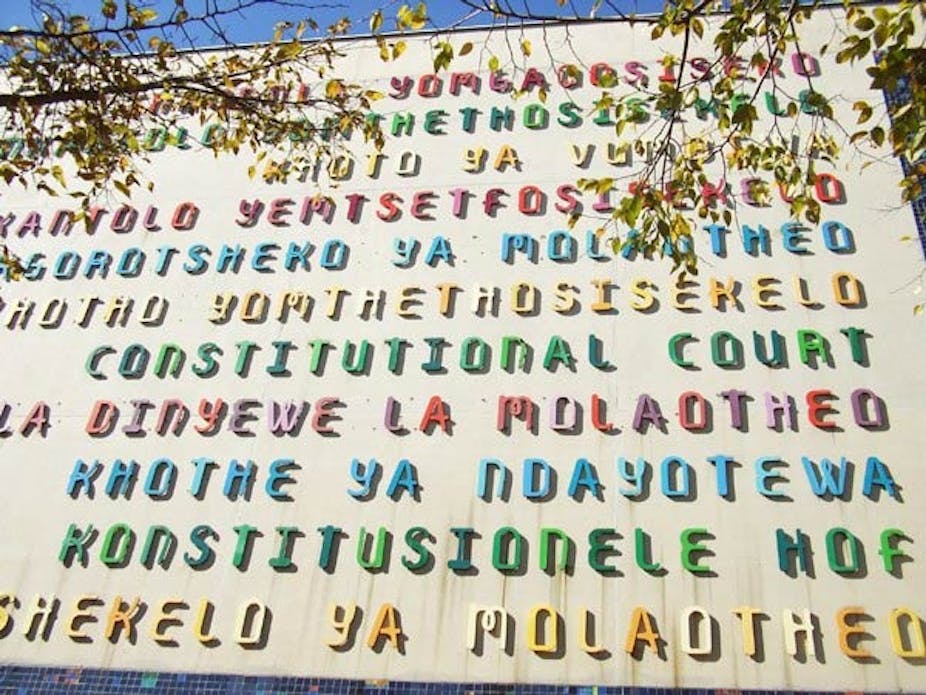
Foundation essay: This is a longer than usual article that takes a wider look at a key issue affecting society.
September is heritage month in South Africa. However, not many people may know that heritage and Heritage Day are much more than another chance for a barbeque, known locally as a braai.
In the past few years, many South Africans have come to associate Heritage Day with a good opportunity to do just that. On this day, some South Africans eat boerewors (homemade flavoured sausage) and drink beer. After all, Heritage Day is unofficially classified by some as ‘National Braai Day’. But heritage is much more than boerewors and beer. It is big business worldwide and has become part of a global toolkit for interpreting the past and forging the future.
A global phenomenon
In the past 50 years, the United Nations Education, Scientific and Cultural Council has inscribed more than 900 sites on its World Heritage List . Tourists from across the globe flock to these sites, earning major income for the nations concerned. A Global Heritage Fund study showed that 500 global heritage sites in the developing world are expected to generate over US $100 billion a year by 2025.
Authors on heritage are also prolific, as the literature is vast. Global conferences on heritage and tourism host thousands of anthropologists, tourism specialists, historians, archaeologists and development professionals. The experts debate the meaning of heritage, its commoditisation in the contemporary world, the impact of globalisation on culture, the loss of important monuments and artefacts through war, terrorism and colonisation. The presenters also debate the role of heritage in national political discourse, especially in emergent discourses in post-colonial states.
Sceptics among them argue that heritage has become that warm fuzzy blanket we use to nostalgically reflect on and evoke the past. We may look wistfully at statues of fallen war heroes and remember their contribution to peace, freedom and democracy, consolidating their place in history and collective memory. Heritage is also accused of inducing amnesia, encouraging a remembrance of certain things and a forgetting of others.
Authors argue that this is especially relevant in nations where the legacy of colonialism is still evident, where the political marginalisation or ‘othering’ of groups has led to the associated marginalisation of their heritage. Thus heritage management is rarely a neutral interpretation of the past.
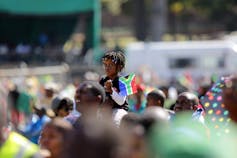
Symbols for the powerful, or for the people
In recent decades then, and certainly in global society, it has become abundantly clear that heritage is not merely a legacy or a gift that we pass from one generation to the next. It can become the symbolic capital of the powerful, their way for reproducing hegemony in the world. The latter is especially relevant when one takes a closer look at the World Heritage List, which indicates that many of the world heritages are situated in the global north.
The majority of tangible heritages identified on the World Heritage List are in North America and Europe. African heritages, many of which are intangible, are few on this list. One might surmise that a list prepared by a multinational organisation is not important, but as the Global Heritage Fund study shows , world heritage is a source of significant revenue. More important than revenue, heritage sites serve as important spaces and places for restorative justice, healing and pride.
The restoration of heritage can offer new narratives of the nation. The stories can also offer a space for democratisation, for the inclusion of women’s contributions to culture and identity. An uncritical ‘use’ of heritage, however, can also be detrimental and encourage what some have called a ‘cultural mosaic’ view of the world, separated and marked by difference.
In 2003, Unesco ratified its Convention for Safeguarding the Intangible Cultural Heritage . This was a welcome addition to its various, detailed conventions regarding the protection of cultural and natural heritages. But Unesco cannot enforce the protection and safeguarding of heritage. At least, there was not a case of it doing so, until very recently, when it condemned the Islamic State’s bombing of the Bel Temple in Palmyra as a war crime .
This critical decision on the part of the world body raises important questions that can be posed but not answered here. How do we decide what should be safeguarded? Can and should heritages last for all time? What kind of war crimes should we be foregrounding and focusing on?
Where heritage is woven into everyday life
Anthropological research in the southwest Indian Ocean shows that heritage is regional, dynamic, creolised and deeply intangible. The reason for its intangibility is that African slaves and Indian indentured labourers, as well as the islands’ many immigrant communities, could not bring all of their tangible artefacts with them. In most instances, those of African and Indian descent were denigrated and denied their cultural identity.
The heritages which these populations hold, however, now find expression in everyday actions and places. From the honouring of ancestors to the composition of music (in the Sega of Mauritius for example) and the attention to oralature, the creolised people of the islands occupy a rich and culturally dynamic social world. On the magical island of Zanzibar, for instance, identities and heritages are imbued with scent.
The use of ylang-ylang, patchouli and vanilla infuse cultural rituals and mark off cultural boundaries. Scent is used to ward off evil and illness and aroma used to attract romance and health. History is described in scented terms, a time of glorious fragrant harmony and the displeasure and stink of present corruption.
In Madagascar, ancestral veneration is still significant and is replete with a range of cultural practices which find unique expression in different parts of the island. Heritage is evident in wood carving, a unique maritime ethos (in the sand drawing of the Vezo in the south of the island), in food and in hair styling. There are, for instance, the ‘braids of love’ (which for women symbolises one’s desire to find a true and lasting love) or braids signifying that one has recently become a mother.
Celebrating the present rather than the past
To return to the incredibly culturally rich continent of Africa and South Africa in particular, one finds an equally rich set of heritages. This is evident in the country’s 11 official languages, the dress of its indigenous peoples, the cultural rituals they share and in the music they compose and sing. Heritage is also evident in the philosophy of Ubuntu , in the political heritage of liberation and in the multifarious contributions of the nations’ diverse immigrant and settler populations. Ubuntu concerns the collective idealised behaviour and practice, produced by communities over a long period of time.
National Braai Day is, as one anthropology colleague once argued, a way to achieve a universal, apolitical symbol of national unification. However and in view of the ongoing Rhodes Must Fall movement , in which there is the removal and ‘defacing’ of colonial monuments across the country as part of efforts to reclaim the present by effacing the past, one finds that there is little focus on the existing bio and cultural diversity of South Africa and a true celebration of these things in all their complexity.
The braai, delicious as it is, is not exactly post-apartheid or un-gendered food. Some might say that it enacts a nostalgic image of (male, settler) farmers gathered around a fire, drinking their home brew and eating homemade sausages in the veld . It is almost a return in the urban ‘jungle’, to an authentic or imagined past. Perhaps contemporary, post-apartheid South Africa should not lose itself in the boerewors and the braai.
Nevertheless, we should be careful not to throw the boerewors out with the braai, as no two boerewors are the same and the braai is different across South Africa, as each person or ‘community’ brings its own flavour to the feast.
- UNESCO World Heritage sites
Want to write?
Write an article and join a growing community of more than 182,600 academics and researchers from 4,945 institutions.
Register now
Academia.edu no longer supports Internet Explorer.
To browse Academia.edu and the wider internet faster and more securely, please take a few seconds to upgrade your browser .
Enter the email address you signed up with and we'll email you a reset link.
- We're Hiring!
- Help Center

Heritage in contemporary grade 10 South African history textbooks: A case study

2012, Masters Dissertation in History Education
Related Papers
Yesterday&Today No 10
Dr Raymond Nkwenti Fru
Yesterday and Today
Johan Wassermann
Southern African journal of environmental education
Cryton Zazu
This conceptual paper is based on experiences and insights which have emerged from my quest to develop a conceptual framework for working with the term 'heritage' within an education for sustainable development study that I am currently conducting. Of specific interest to me, and having potential to improve the relevance and quality of heritage education in southern Africa, given the region's inherent cultural diversity and colonial history, is the need for 'heritage construct inclusivity' within the processes constituting heritage education practices. Working around this broad research goal, I therefore needed to be clear about what I mean or refer to as heritage. I realised, however, how elusive and conceptually problematic the term 'heritage' is. I therefore, drawing from literature and experiences gained during field observations and focus group interviews, came up with the idea of working with three viewpoints of heritage. Drawing on real life cases ...
Alta Engelbrecht
This article focuses on the analysis of three textbooks that are based on the Curriculum and Assessment Policy Statement (CAPS), a revised curriculum from the National Curriculum Statement which was implemented in 2008. The article uses one element of a historical thinking framework, the analysis of primary sources, to evaluate the textbooks. In the analysis of primary sources the three heuristics distilled by Wineburg (2001) such as sourcing, corroborating and contextualizing are used to evaluate the utilisation of the primary sources in the three textbooks. According to the findings of this article, the writing of the three textbooks is still framed in an outdated mode of textbooks' writing in a dominant narrative style, influenced by Ranke's scientific paradigm or realism. The three textbooks have many primary sources that are poorly contextualized and which inhibit the implementation of sourcing, corroborating and contextualizing heuristics. Although, some primary sources are contextualized, source-based questions are not reflecting most of the elements of sourcing, corroborating and contextualizing heuristics. Instead, they are mostly focused on the information on the source which is influenced by the authors' conventional epistemological beliefs about school history as a compendium of facts. This poor contextualization of sources impacted negatively on the analysis of primary sources by learners as part and parcel of " doing history " in the classroom.
abram mothiba
School history textbooks are seen to embody ideological messages about whose history is important, as they aim both to develop an 'ideal' citizen and teach the subject of history. Since the 1940s, when the first study was done, there have been studies of South African history textbooks that have analysed different aspects of textbooks. These studies often happen at a time of political change (for example, after South Africa became a republic in 1961 or post-apartheid) which often coincides with a time of curriculum change. This article provides an overview of all the studies of South African history textbooks since the 1940s. We compiled a data base of all studies conducted on history textbooks, including post graduate dissertations, published journal articles, books and book chapters. This article firstly provides a broad overview of all the peer-reviewed studies, noting in particular how the number of studies has increased since 2000. The second section then engages in a more detailed analysis of the studies that did content analysis of textbooks. We compare how each study has engaged with the following issues: the object of study, the methodological approach, the sample of textbooks and the theoretical or philosophical orientation. The aim is to provide a broad picture of the state of textbook analysis studies over the past 75 years, and to build up a database of these studies so as to provide an overview of the nature of history textbook research in South Africa.
Pranitha Bharath
The Southern African Journal of Environmental Education
Felisa Tibbitts
RELATED PAPERS
Asian Pacific Journal of Allergy and Immunology Launched By the Allergy and Immunology Society of Thailand
Wannaporn Ittiprasert
Revista Científica Multidisciplinar Núcleo do Conhecimento
Sérgio Rodrigo Araújo Pereira
Spiros Alexakis
Lecture Notes in Computer Science
cristina mussinelli
Journal of Mining and Geology
Nuhu Samaila
Monthly Notices of the Royal Astronomical Society
RAMKRISHNA DAS
Andrzej Stateczny
Turk Plastik Rekonstruktif Ve Estetik Cerrahi Dergisi
Tamer Koldaş
Clinical Chemistry
Karen Prestwood
Journal of bone and mineral research : the official journal of the American Society for Bone and Mineral Research
FERNANDO MARIN
Theresa Dendinger
Proceedings of the 26th IEEE International Symposium on Computer-Based Medical Systems
Muhamad Salman
Bioscience, Biotechnology, and Biochemistry
Anil Saxena
Langenbeck's Archives of Surgery
OMER YILMAZ
Andrzej Wal
Journal of drug targeting
Abhishek Pal
Andika Wahyu Nugroho_04
Neuropsychologia
Jarl Risberg
Süleyman demirel üniversitesi sağlık bilimleri dergisi
Betül ÇAKMAK
AGILE: GIScience Series
Eva-Maria Steinbacher
Construction and Building Materials
Gordon Airey
Journal of Agricultural Engineering
Fabrizio Sarghini
Ade wawan Cirebhone84
Proyección e Innovación Social
IVAN MAURICIO BERMUDEZ VERA
Journal of the Endocrine Society
Izilda Cardinalli
RELATED TOPICS
- We're Hiring!
- Help Center
- Find new research papers in:
- Health Sciences
- Earth Sciences
- Cognitive Science
- Mathematics
- Computer Science
- Academia ©2024

Heritage Day Essay South Africa – 500 Words
Celebrating Heritage Day in South Africa
Table of Contents
Introduction
Heritage Day in South Africa is a day of immense significance, celebrated annually on September 24th. It is a day that embodies the rich tapestry of this diverse nation, showcasing its cultural, historical, and social heritage. This essay delves into the importance of Heritage Day, its history, and how it unites the people of South Africa.
Historical Background
Heritage Day was first officially recognized in 1996, following the end of apartheid and the dawn of a new era of democracy in South Africa. It was originally known as Shaka Day, commemorating the legendary Zulu King Shaka Zulu. However, in 1996, President Nelson Mandela officially declared it as Heritage Day, emphasizing the need to celebrate the country’s diverse cultural heritage and foster unity among its citizens.
Celebrating Diversity
South Africa is often referred to as the “Rainbow Nation” due to its incredible diversity, with a multitude of ethnicities, languages, and cultures coexisting harmoniously. Heritage Day is an occasion that encourages South Africans to embrace and celebrate this diversity. People of all backgrounds come together to proudly display their traditions, customs, and cuisines.
Cultural Showcases
One of the most striking features of Heritage Day is the colorful cultural showcases that take place across the country. Communities organize events where they proudly exhibit their traditional attire, music, dance, and rituals. This offers an opportunity for people to learn about and appreciate the richness of various South African cultures, from the Zulu, Xhosa, and Sotho to the Afrikaner and Cape Malay cultures.
Culinary Delights
Food plays a significant role in celebrating heritage, and South Africa is no exception. On Heritage Day, many South Africans fire up their grills and participate in what is affectionately known as “National Braai Day.” A braai is a traditional South African barbecue, and it symbolizes the coming together of people from all walks of life over a shared meal. People savor a variety of meats, including boerewors (sausage) and sosaties (kebabs), along with an array of side dishes and desserts.
Promoting Unity
Heritage Day is more than just a celebration of culture; it is a powerful tool for promoting unity and social cohesion in South Africa. In a country with a complex history of racial divisions, this day encourages people to look beyond their differences and find common ground. It serves as a reminder of the shared values, experiences, and aspirations that bind South Africans together as a nation.
Preserving History
Heritage Day also provides an opportunity for South Africans to reflect on their history and the struggles that have shaped the nation. It is a time to remember the sacrifices made during the struggle against apartheid and to honor those who fought for freedom and equality.
Heritage Day in South Africa is a celebration of diversity, culture, and unity. It serves as a powerful reminder that despite its complex history, South Africa is a nation that can overcome its divisions and come together in the spirit of harmony and reconciliation. As South Africans proudly showcase their heritage, they contribute to the preservation of their cultural legacy and the building of a brighter, more inclusive future for all. Heritage Day stands as a testament to the resilience and unity of the Rainbow Nation.
More From Forbes
Visualizing history: lincoln university showcases its heritage.
- Share to Facebook
- Share to Twitter
- Share to Linkedin
Cecily Louise "Cicely" Tyson, American actress known for her portrayal of strong African-American ... [+] women delivers an acceptance speech at Lincoln University where she is awarded an honorary degree. Tyson received various awards including three Emmy Awards, a Screen Actors Guild Award, a Tony Award, an Honorary Academy Award, and a Peabody Award. (Lincoln University via Getty Images)
On its Founder’s Day this year — April 29th — Lincoln University , PA will showcase its rich history and future aspirations. The historically Black institution, known for being the nation’s first degree granting HBCU, is celebrating 170 years. According to Brenda Allen, president of the University, “At Lincoln, we are committed to shaping a future anchored in innovation, sustainability, and community engagement. As we navigate the evolving landscape of higher education, we continuously seek new opportunities while honoring our historic strength and legacy - our tradition of liberal arts education.”
Brenda Allen, president of Lincoln University
The University is planning several on-campus public celebrations to honor its founder, John Miller Dickey . Dickey, along with his wife Sarah Cresson , founded the Ashmun Institute in 1854, which became Lincoln University in 1866 after the assassination of Abraham Lincoln. Dickey was the Institute’s first president from 1854-1856.
Allen shared, “"Founder's Day at Lincoln University is a profound moment of reflection and celebration honoring the enduring legacy of our esteemed founder, John Miller Dickey. It serves as a testament to Lincoln’s unwavering dedication to intellectual rigor as we continue shaping the future with the same spirit of innovation, inclusivity, and community engagement that has defined Lincoln for 170 years, while forging a path of innovation and distinction for future generations."
Langston Hughes takes a photo with his mother, Carrie Langston Hughes during his graduation ceremony ... [+] at Lincoln University in 1929. (Lincoln University via Getty Images)
The Best Reading Glasses Plus Expert Tips From An Ophthalmologist
‘baby reindeer’ star says real martha searches need to stop, ‘challengers’ reviews: does zendaya tennis movie score with critics.
One of the special events planned for Founder’s Day is a collaboration with Getty Images to showcase historical photos in the library. This initiative, led by Lincoln student Drake Smith , offers a glimpse into the University’s history through captivating visuals. Lincoln has an extensive collection of photographs, showcasing many of the luminaries who have graduated from and visited the campus, including poet and writer Langston Hughes, Nikki Giovanni, and Thurgood Marshall. The collection also includes many students, faculty and staff who have participated in campus life throughout the University’s history.
James Mercer Langston Hughes, an American poet, social activist, novelist, playwright, and columnist ... [+] from Joplin, Missouri. One of the earliest innovators of the literary art form called jazz poetry, Hughes is best known as a leader of the Harlem Renaissance. Langston Hughes attended Lincoln University from 1926 - 1929. (Lincoln University via Getty Images)
The partnership with Getty Images is focused on illuminating history while also safeguarding the University’s intellectual heritage. The image company has committed to managing the post-production costs to restore 1,500 photos from Lincoln's archives. This endeavor is made possible through Getty Images' HBCU Photo Archive Grants Program . According to Getty, the company is “dedicated to advancing cultural preservation and celebrating the traditions of HBCUs.”
Along with Getty, Epson America, Inc ., a partner of Getty Images, has donated scanning equipment and software to assist Lincoln's digitization efforts. In addition, Adnet Globa l will provide post-production assistance to ensure the digital images are coded with metadata.
HBCU — archives like the one at Lincoln — chronicle nearly 300 years of African American history. As Sharon Ferguson Freeman stated in a 2022 report titled Creating Access to HBCU Library Alliance Archives: Needs, Capacity, and Technical Planning , “These libraries’ collections contain rare and unique materials with the potential to enrich current narratives about the history of American education; the scholarship, activism, and public service of HBCU presidents, faculty, and alumni; slavery, World War II, and the civil rights movement; the activities of African American religious organizations and leaders; African and African diaspora studies; and more.”
Freeman also shared that one of the greatest needs of HBCUs’ archives is digitization of photos and paper collections. The partnership between Lincoln University and Getty Images is working to alleviate this need, while celebrating the rich history of the institution.

- Editorial Standards
- Reprints & Permissions

COMMENTS
January 2, 2024 by My Courses Editor. This page contains an essay guide for Grade 10 History learners on how to write a Heritage Day essay (introduction, body, and conclusion). On the 24th of September every year in South Africa, there is a great celebration of all cultures and heritages of all South Africans. This was after the Inkatha Freedom ...
Introduction for an Essay on Heritage Day Heritage Day, also known as National Braai Day, is a significant day in South Africa's history, celebrated annually on the 24th of September. This day is a celebration of the diverse cultural heritage that makes up the Rainbow Nation.
The History of Heritage Day in South Africa. The 24th of September marks 'Shaka Day' or 'Shaka's Day', a day which commemorates the legendary King Shaka Zulu. Shaka Zulu played an important role in uniting different Zulu clans into one cohesive Zulu nation in Kwa-Zulu Natal. Each year, thousands of people gather at King Shaka's ...
Essay Guideline. Important: you should include relevant images to go with your key points. You can find plenty of images on the internet, as long as you provide the credits/sources. When you write your Heritage Day essay as a grade 10 student, you will get great marks if you include the following structure: Introduction: Provide a brief history ...
History of Heritage Day. In KwaZulu-Natal, 24 September has been observed as 'Shaka's Day,' in commemoration of the legendary Zulu king, King Shaka Zulu . When the proposed Public Holidays Bill before the New South African Parliament omitted Shaka Day, the Inkatha Freedom Party (IFP), a South African political party with a large Zulu membership ...
Heritage Day has its roots in South Africa's tumultuous history, specifically during the apartheid era when cultural diversity was suppressed. In 1996, the South African government declared September 24th as Heritage Day to promote inclusivity and acknowledge the importance of cultural heritage. This symbolic gesture aimed to unite the country ...
Heritage Day is a public holiday in South Africa . It is celebrated every year on September 24. Heritage Day is a day when people concentrate on the importance of South Africa's cultural heritage.
A significant celebration that embodies this cultural tapestry is Heritage Day, observed on September 24th each year. This day is a reflection of the nation's commitment to celebrating and preserving its unique heritage. In this blog, we'll delve into the significance, history, and customs of Heritage Day in South Africa.
Heritage Day (Afrikaans: Erfenisdag; Xhosa: Usuku Lwamagugu, Usuku lokugubha amasiko) is a South African public holiday celebrated on 24 September. On this day, South Africans are encouraged to celebrate their culture and the diversity of their beliefs and traditions, in the wider context of a nation that belongs to all its people.. When Heritage Day falls on a Sunday, the following Monday is ...
The Boerewors Braai - dimension of heritage is the nearest that neo-liberalism could sqeeze out of this conceived holiday. Like most other "national holidays" in South Africa, the historical significance is distorted and redefined - June 16 (Soweto) as: Youth Day; Sharpville day as: Human Rights day etc. In fact Heritage day was already renamed "National Braai day" and promoted by ...
Understanding Heritage: Heritage, in its essence, encompasses the tangible and intangible treasures that encapsulate the identity, history, and values of a community or civilization. It extends ...
Heritage Day was initially known as 'Shaka Day' or 'Shaka's Day', a day dedicated to commemorating the legendary King Shaka Zulu on the presumed date of his death in 1828. Shaka Zulu played an important role in uniting different Zulu clans into one cohesive Zulu nation in Kwa-Zulu Natal. To this day, thousands of people gather at the ...
This essay describes the significance of Heritage Day in South Africa. The student traces the roots of the holiday, the role that Nelson Mandela played in making it a national holiday, and the traditions associated with it. This essay received a B by one of Kibin's paper graders.
Essay. In South Africa, Heritage Day, celebrated on the 24th of September, is a profound national holiday that recognises and celebrates the cultural wealth of the nation.It's a day that reflects the country's complex history, marked by apartheid, colonialism, and the struggle for freedom, and how its diverse cultures contribute to the nation's identity.
History of Heritage Day. September 24 was previously known in South Africa as Shaka Day, a day commemorating the Zulu King of Shaka. He was known for uniting the Zulu clan together and forming the Zulu nation. Every year, South Africans would gather at his grave to honor him. In 1995 a request for the day to be confirmed as an official holiday ...
Essay On Heritage Day. 1002 Words5 Pages. The day of reconciliation now known as heritage day is celebraaated all over South Africa on 16 December. Regardless of race, culture and beliefs, heritage day promises a future that sees no colour and a future with no discrimination where all South Africans black or white come together as one.
Foundation essay: This is a longer than usual article that takes a wider look at a key issue affecting society. September is heritage month in South Africa. However, not many people may know that ...
School history textbooks are seen to embody ideological messages about whose history is important, as they aim both to develop an 'ideal' citizen and teach the subject of history. Since the 1940s, when the first study was done, there have been studies of South African history textbooks that have analysed different aspects of textbooks.
Introduction for an Essay on Heritage Day. Heritage Day, also known as National Braai Day, is a significant day in South Africa's history, celebrated annually on the 24th of September. This day is a celebration of the diverse cultural. heritage that makes up the Rainbow Nation. It is a time for South Africans to reflect on their.
The Heritage Bibliography Collection makes available various compiled bibliographies suggested by Heritage advisors and field experts. The collection sought to contextualize the documentation of each cultural heritage site and landscape with relevant scholarship. We selected field experts to make recommendations on these scholarly materials, and sourced these materials from various archives ...
Heritage Day in South Africa is a day of immense significance, celebrated annually on September 24th. It is a day that embodies the rich tapestry of this diverse nation, showcasing its cultural, historical, and social heritage. This essay delves into the importance of Heritage Day, its history, and how it unites the people of South Africa.
people are able to comprehend heritage in its broadest sense, especially those with a professional background in history or cultural studies. The 4NSW Heritage Round-table for example elicited very inclusive definitions from its subjects. For me because heritage is about physical things, its about buildings, its about ruins, its about bits
Heritage Essay: The term "heritage" has many contexts - from history and society to culture and even heredity. We shall explore the meaning of this term from different contexts and understand its implications. In History, the term heritage refers to any processes or events that have a unique or special meaning in group memory. This […]
On its Founder's Day this year — April 29th — Lincoln University, PA will showcase its rich history and future aspirations. The historically Black institution, known for being the nation's ...
Step back in time and immerse yourself in the rich cultural history of Oregon's Chinese community as the Kam Wah Chung State Heritage Site opens its doors for the season on May 2.